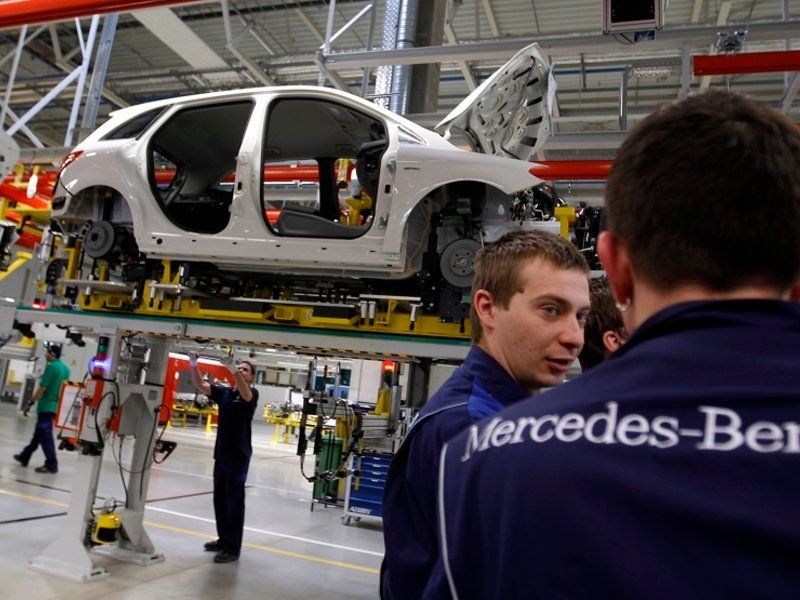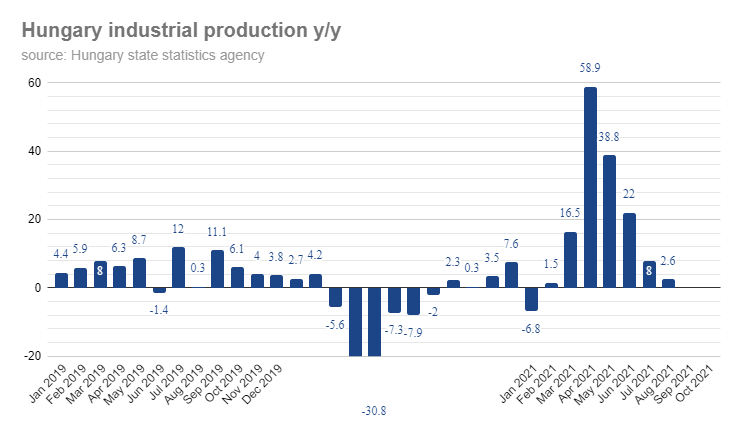Hungarian automotive production drops 33% yoy due to Chips shortage

The output of Hungarian automobile production, the engine of industrial growth, declined 33.7% yoy in August as the global semiconductor shortage hit factories, the Bureau of Statistics (KSH) said in a second reading in October. KSH confirmed that aggregate industrial production increased by 2.6% and 0.6% after adjusting the working days. On a monthly basis, production fell by 2.7% after adjustment for seasonal and working days.
The decline in production by automotive companies, which represented 17% of total production in August, accelerated after a 6.7% decline in July. The global shortage of chips forced the Daimler plant in Kecskemet to cut production in August.

After a dynamic rebound after reopening, industrial production appears to have hit a wall, ING analyst Peter Virovacz said in a note following the preliminary data.
The combination of transportation problems, supply chain difficulties and labor shortages is now an effective barrier to speeding up production, he added.
Production in the computer, electronic and optical equipment segment, which accounts for 12% of the manufacturing sector, declined 3.7% in August compared to the previous year.
Industrial sales increased 5.8% year over year, with domestic sales increasing 15.8% and export sales increasing 0.2%.
The order backlog in the segments of the manufacturing industry covered by KSH rose by 10.8% year-on-year at the end of August and incoming orders fell by 12.5% as domestic incoming orders rose and incoming orders from exports fell by 15.7% .
The outlook for the sector is clouded by rising energy and commodity prices, which are undermining the sector's profitability. According to analysts, Hungarian companies are facing rising labor costs.
Industrial production could be further affected by plant closings in September, Erste Bank noted, adding that fourth quarter GDP growth could be subdued as the external environment becomes less favorable.
